.webp)
The spiritual journey of pilgrimage holds immense significance for Pakistani pilgrims, representing a profound act of devotion and faith. Whether it's the sacred pilgrimage of Hajj to Mecca and Medina, the revered Umrah, or other significant Ziarat (visits to holy sites), millions of Pakistani pilgrims annually embark on these profound spiritual endeavors. Central to facilitating these journeys, and indeed, a non-negotiable prerequisite, is the possession of a valid machine-readable passport. This document is not merely a travel credential; for Pakistani pilgrims, it is the fundamental gateway to fulfilling their spiritual aspirations, ensuring their eligibility to enter foreign lands and perform their religious rites. The specific validity period, as mandated, plays a critical role in the planning and execution of these journeys, with a clear cut-off date that Pakistani pilgrims must meticulously observe.
The focus of this comprehensive article is to delve deep into the critical requirement for Pakistani pilgrims regarding their machine-readable passport. We will explore why this specific type of passport is mandated, the implications of the stated validity deadline, and the broader context of travel documentation for Pakistani pilgrims. Understanding these nuances is paramount for every prospective Pakistani pilgrim to avoid last-minute complications and ensure a seamless and blessed journey. The spiritual fulfillment derived from Hajj and Umrah, in particular, depends heavily on meticulous preparation, and at the very core of this preparation lies the machine-readable passport for Pakistani pilgrims.
The Mandate for a Machine-Readable Passport: A Cornerstone Requirement for Pakistani Pilgrims
The specific stipulation that Pakistani pilgrims must possess a machine-readable passport is a testament to global efforts towards enhanced security and efficiency in international travel. Gone are the days when manually written or non-standardized passports were widely accepted. The machine-readable passport (MRP) integrates a machine-readable zone (MRZ) that can be quickly scanned by electronic readers, allowing for rapid verification of traveler identity and authenticity of the document. For Pakistani pilgrims undertaking journeys to foreign countries, especially Saudi Arabia for Hajj and Umrah, this technology streamlines immigration processes, reduces potential for human error, and significantly enhances security against fraudulent documents.
Why Machine-Readable? The Benefits for Pakistani Pilgrims and Host Nations
The transition to machine-readable passports has brought numerous advantages, particularly for countries like Pakistan, which send large contingents of Pakistani pilgrims abroad.
- Expedited Immigration Processes: When a Pakistani pilgrim arrives at an international airport, their machine-readable passport can be scanned in seconds. This significantly reduces queues and wait times, a crucial factor when managing thousands of Pakistani pilgrims arriving simultaneously, especially during Hajj season. The efficiency gained benefits both the Pakistani pilgrim and the host nation's immigration authorities.
- Enhanced Security Features: Machine-readable passports incorporate advanced security features beyond the MRZ, including biometric data (like fingerprints and facial recognition information), watermarks, holographic images, and microprinting. These features make it exceptionally difficult to forge or alter the passport, thereby safeguarding the identity of the Pakistani pilgrim and preventing illicit activities. For Pakistani pilgrims, this means greater protection against identity theft and safer travel.
- Global Interoperability: The standards for machine-readable passports are set by the International Civil Aviation Organization (ICAO). This global standardization ensures that a machine-readable passport issued to a Pakistani pilgrim in Pakistan is recognized and readable by passport scanners worldwide, facilitating smoother entry and exit from various countries. This interoperability is vital for Pakistani pilgrims traversing multiple borders.
- Reduced Human Error: Manual data entry and verification are prone to errors. With a machine-readable passport, the data is electronically captured, minimizing the chances of transcription mistakes that could otherwise delay or complicate the travel of a Pakistani pilgrim. Accuracy is paramount when dealing with crucial travel documents for Pakistani pilgrims.
- Compliance with International Regulations: Many countries, including Saudi Arabia, strictly adhere to international travel regulations that mandate machine-readable passports. For Pakistani pilgrims to be eligible for their pilgrimage visas, possessing an MRP is not just a recommendation but a mandatory requirement. Non-compliance could lead to immediate refusal of entry, a devastating outcome for any Pakistani pilgrim.
Therefore, for every Pakistani pilgrim, securing a machine-readable passport is the foundational step. It's not merely a bureaucratic hurdle but a critical measure that ensures their safe, secure, and efficient passage to the holy lands. The Pakistani government, through its passport issuance agencies, is committed to providing Pakistani pilgrims with these compliant documents.
The Critical Validity Deadline: December 31, 2025, for Pakistani Pilgrims
The specific requirement for Pakistani pilgrims to have a machine-readable passport valid until at least December 31, 2025, is a definitive instruction that leaves no room for ambiguity. This date serves as a non-negotiable benchmark for all Pakistani pilgrims planning their spiritual journey in the near future. Understanding the implications of this deadline is paramount for every prospective Pakistani pilgrim to avoid any last-minute distress or disqualification.
Why a Specific Expiry Date? Implications for Pakistani Pilgrims
The establishment of such a precise validity deadline – December 31, 2025 – for the machine-readable passport of Pakistani pilgrims serves several practical and regulatory purposes:
- Visa Requirements and Host Nation Policies: Countries like Saudi Arabia, the primary destination for Hajj and Umrah, often impose specific passport validity requirements for visa issuance. Typically, a passport needs to be valid for at least six months beyond the intended stay. By setting a hard deadline like December 31, 2025, for Pakistani pilgrims, it ensures that pilgrims' passports meet or exceed the validity period required for both visa application and their actual stay in the host country, including any unforeseen extensions or delays. This prevents situations where a Pakistani pilgrim might have a valid visa but an expiring passport, leading to complications.
- Anticipation of Future Travel: Even if a pilgrimage concludes before December 31, 2025, setting this validity date ensures that the machine-readable passport of a Pakistani pilgrim remains valid for a reasonable period afterward. This is important for potential future travel or if there are any unforeseen circumstances requiring an extended stay. For Pakistani pilgrims, knowing their passport is valid well into the future offers peace of mind.
- Streamlined Administrative Processes: By providing a clear cut-off, immigration and visa processing agencies in Pakistan and Saudi Arabia can streamline their operations. It provides a straightforward criterion for eligibility, simplifying the initial screening process for Pakistani pilgrims. This clarity minimizes confusion for both the Pakistani pilgrims and the administrators.
- Minimizing Risk of Deportation/Complications: A Pakistani pilgrim with an expiring passport faces the risk of being denied entry, detained, or even deported from the host country. By enforcing the December 31, 2025, validity, authorities aim to prevent such unfortunate incidents, ensuring the safe and uninterrupted journey of Pakistani pilgrims. The safety and smooth passage of every Pakistani pilgrim is a priority.
- Preparation and Planning Window: This specific date provides Pakistani pilgrims with a clear timeline for action. Those whose machine-readable passports expire before December 31, 2025, are unequivocally instructed to initiate the renewal process well in advance. This proactive approach is crucial, especially given the volume of Pakistani pilgrims applying for passports.
Actionable Steps for Pakistani Pilgrims Regarding Passport Validity
Given the explicit requirement for a machine-readable passport valid until at least December 31, 2025, Pakistani pilgrims must take immediate action if their passport's validity falls short.
- Check Your Passport's Expiry Date: The first and most critical step for every aspiring Pakistani pilgrim is to physically examine their existing machine-readable passport and note its expiry date. This must be done well in advance of any pilgrimage application process.
- Initiate Renewal Promptly: If the expiry date is before December 31, 2025, or if there is any doubt, the Pakistani pilgrim must immediately apply for a passport renewal. Passport processing times can vary, and delays are not uncommon, especially during peak seasons. Procrastination can jeopardize the entire pilgrimage for a Pakistani pilgrim.
- Consider Emergency/Urgent Processing: For Pakistani pilgrims with very limited time, the Directorate General of Immigration & Passports offers urgent processing options. While these incur higher fees, they might be a necessary recourse to meet the December 31, 2025, deadline.
- Verify New Passport Details: Upon receiving the renewed machine-readable passport, the Pakistani pilgrim should carefully verify all details, especially the validity date, to ensure it meets the December 31, 2025, requirement.
The importance of the December 31, 2025, deadline for the machine-readable passport cannot be overstated. It is a fundamental criterion for eligibility and a critical factor in the successful execution of the pilgrimage for Pakistani pilgrims.
The Broader Spectrum of Travel Documentation for Pakistani Pilgrims
While the machine-readable passport valid until at least December 31, 2025, is undeniably the cornerstone, Pakistani pilgrims must understand that their journey requires a suite of other meticulously prepared documents. The passport is the primary identification, but a successful pilgrimage involves fulfilling various other immigration, health, and logistical requirements set by both the Pakistani government and the host country, particularly Saudi Arabia for Hajj and Umrah pilgrims.
Beyond the Passport: Essential Documents for Pakistani Pilgrims
For a comprehensive and hassle-free journey, Pakistani pilgrims need to be aware of and prepare the following:
Pilgrimage Visa:
- Hajj Visa: Specific visas are issued for the Hajj pilgrimage, typically applied for through authorized Hajj operators or the Ministry of Religious Affairs and Interfaith Harmony in Pakistan. This visa is strictly for the Hajj period and cannot be used for other purposes. The machine-readable passport is indispensable for this application.
- Umrah Visa: Similarly, Umrah visas are distinct and allow Pakistani pilgrims to perform Umrah at any time of the year outside the Hajj season. These are also processed through licensed travel agencies.
- Visa Validity: Pakistani pilgrims must ensure their visa validity covers their entire intended stay and adheres to any entry/exit window specified.
Health Certificates and Vaccinations:
- Meningitis Vaccine (ACYW135): This is a mandatory vaccination for all Pakistani pilgrims entering Saudi Arabia for Hajj or Umrah. An international vaccination certificate proving administration is required.
- Polio Vaccination: For Pakistani pilgrims, particularly those coming from polio-endemic countries, proof of polio vaccination (oral or injectable) is often required, along with an International Certificate of Vaccination or Prophylaxis (ICVP).
- Seasonal Flu Vaccine: Recommended for Pakistani pilgrims to minimize health risks during mass gatherings.
- Other Health Declarations: Depending on global health situations, additional health screenings or declarations might be required for Pakistani pilgrims.
National Identity Card (NADRA CNIC/NICOP):
- While not a travel document for international entry, the CNIC (Computerized National Identity Card) or NICOP (National Identity Card for Overseas Pakistanis) is essential for Pakistani pilgrims within Pakistan for application processes, identification, and domestic travel. It acts as a primary identity proof for passport applications and visa processing.
Return Air Ticket:
- Proof of a confirmed return air ticket is usually a prerequisite for visa issuance and entry into Saudi Arabia. This confirms the Pakistani pilgrim's intention to return to their home country.
Proof of Accommodation:
- For Hajj and Umrah, travel agencies arrange accommodation. Pakistani pilgrims must have documentation (hotel booking confirmations) confirming their lodging in Mecca and Medina. This is part of the visa application for Pakistani pilgrims.
Financial Proof (Optional but Recommended):
- While not always explicitly required for Hajj/Umrah visas, having access to sufficient funds for emergencies or personal expenses is advisable for Pakistani pilgrims.
No Objection Certificate (NOC) (If Applicable):
- For government employees or certain categories of individuals, an NOC from their employer might be required to travel abroad for pilgrimage.
Marriage Certificate/Family Registration Certificate (FRC):
- For female Pakistani pilgrims traveling without a Mahram (male guardian), or for families traveling together, proof of relationship might be required. Saudi regulations often stipulate that women under a certain age must travel with a Mahram.
Each of these documents plays a vital role in ensuring that a Pakistani pilgrim's journey is compliant with international regulations and free from unnecessary hurdles. The machine-readable passport valid until at least December 31, 2025, remains the central anchor for all these supplementary requirements.
The Application Process: Securing Your Machine-Readable Passport as a Pakistani Pilgrim
Obtaining or renewing a machine-readable passport for Pakistani pilgrims is a structured process facilitated by the Directorate General of Immigration & Passports (DGIP) under the Ministry of Interior. Understanding this process is crucial for Pakistani pilgrims to meet the December 31, 2025, validity deadline efficiently.
Steps for Pakistani Pilgrims to Acquire/Renew a Machine-Readable Passport:
The process generally involves the following stages for Pakistani pilgrims:
Visit a Passport Office/Service Center:
- Pakistani pilgrims must visit a designated passport office or a Passport Service Center (e.g., in NADRA Mega Centers) in their respective cities.
- Online Appointment System: It is highly recommended that Pakistani pilgrims utilize the online appointment system (if available) to book a slot, reducing wait times.
Required Documents:
- Original and a photocopy of your valid CNIC/NICOP for Pakistani pilgrims.
- Original and a photocopy of your previous machine-readable passport (if renewing).
- In case of a lost passport, a police report (FIR) is mandatory for the Pakistani pilgrim.
- For minors, original and photocopy of Bay-form/CRC and CNIC/NICOP of parents.
- Photographs are typically taken digitally at the passport office for the Pakistani pilgrim.
Fee Submission:
- Pakistani pilgrims will pay the prescribed fee. There are different fee structures for normal, urgent, and fast-track processing, as well as for different validity periods (e.g., 5-year or 10-year passports). Given the December 31, 2025 requirement, Pakistani pilgrims should ensure their renewed passport covers this period.
- The fee is usually deposited at a designated bank counter within the passport office premises or through specific online payment methods.
Data Entry and Biometrics:
- At the data entry counter, details from the Pakistani pilgrim's CNIC/NICOP and previous passport (if any) are entered into the system.
- Pakistani pilgrims will provide their fingerprints (biometrics) and have their photograph taken digitally.
- The signature of the Pakistani pilgrim is also captured.
Interview and Verification:
- A brief interview might be conducted to verify the identity and details of the Pakistani pilgrim.
- For certain cases, additional verification might be required.
Receipt and Tracking:
- Upon successful completion of the process, the Pakistani pilgrim will receive a receipt with a tracking number. This number can be used to track the status of their machine-readable passport online or via SMS.
Passport Collection/Delivery:
- Once printed, the machine-readable passport can be collected from the designated passport office, or in some cases, it may be delivered to the Pakistani pilgrim's registered address via courier service.
Key Considerations for Pakistani Pilgrims During Passport Application:
- Timeliness: Applying for a new or renewed machine-readable passport well in advance is critical. Given the large number of Pakistani pilgrims and general passport applicants, processing times can extend, especially during peak seasons. Meeting the December 31, 2025, deadline requires foresight.
- Accuracy of Information: Ensuring all details provided are accurate and consistent with other identity documents is paramount for the Pakistani pilgrim. Discrepancies can lead to significant delays.
- Checking Status: Regularly checking the status of the passport application using the tracking number is advisable for every Pakistani pilgrim.
- Lost/Damaged Passports: Pakistani pilgrims who have lost their machine-readable passport or have a damaged one must follow specific procedures, including filing a police report, before applying for a new one. This adds significant time to the process for the Pakistani pilgrim.
The efficient acquisition of a machine-readable passport is a non-negotiable step for any Pakistani pilgrim. The stipulated validity until December 31, 2025, is a firm reminder for proactive planning and execution of this vital administrative task.
The Role of Government and Agencies in Facilitating Pakistani Pilgrims
The Government of Pakistan, primarily through the Ministry of Religious Affairs and Interfaith Harmony, along with the Directorate General of Immigration & Passports, plays a pivotal role in facilitating the smooth and organized journeys of Pakistani pilgrims. Their efforts extend beyond merely mandating the machine-readable passport valid until at least December 31, 2025, to encompass a wide array of support services and regulatory frameworks designed to assist Pakistani pilgrims.
Support Mechanisms for Pakistani Pilgrims:
- Hajj Policy and Quota Management: The Ministry of Religious Affairs annually announces the Hajj policy, allocates quotas for the government scheme and the private scheme Pakistani pilgrims, and manages the ballot process. This includes guidelines related to passport validity, directly impacting Pakistani pilgrims with the December 31, 2025, cut-off.
- Pre-Departure Training: Comprehensive training sessions are organized for Pakistani pilgrims covering rituals, health precautions, safety measures, and cultural sensitivities, ensuring they are well-prepared for the journey. This often includes reminders about passport requirements for Pakistani pilgrims.
- Pilgrim Welfare and Health Services: During Hajj, the Pakistani government establishes medical missions and welfare teams in Saudi Arabia to provide healthcare and support services to Pakistani pilgrims. This ensures the well-being of every Pakistani pilgrim.
- Visa Facilitation: While visas are issued by the Saudi Embassy, the Pakistani government and its authorized Hajj/Umrah operators play a crucial role in coordinating and submitting visa applications on behalf of Pakistani pilgrims, ensuring all documentation, including the machine-readable passport, is in order.
- Grievance Redressal: Mechanisms are in place for Pakistani pilgrims to lodge complaints or seek assistance regarding any issues faced during their pilgrimage, whether related to travel arrangements or other services.
- Awareness Campaigns: Regular public awareness campaigns are launched to inform prospective Pakistani pilgrims about the requirements, deadlines, and procedures, including the critical December 31, 2025, passport validity requirement.
Table: Key Government Bodies and Their Roles for Pakistani Pilgrims
Government Body | Primary Role in Facilitating Pakistani Pilgrims |
Ministry of Religious Affairs and Interfaith Harmony | Formulates Hajj Policy, manages government Hajj scheme, allocates quotas, conducts training, oversees pilgrim welfare, handles complaints. |
Directorate General of Immigration & Passports | Issues and renews machine-readable passports, ensuring compliance with international standards and validity requirements (e.g., December 31, 2025). |
National Database and Registration Authority (NADRA) | Issues CNIC/NICOP, which are essential identity documents for Pakistani pilgrims applying for passports and other travel documents. |
Pakistan International Airlines (PIA) / Other Airlines | Provides air travel services for Pakistani pilgrims to and from Saudi Arabia, adhering to baggage and travel regulations. |
Private Hajj & Umrah Operators | Licensed by the Ministry, these operators manage travel logistics, accommodation, visa processing, and ground services for Pakistani pilgrims. |
The collective efforts of these entities aim to ensure that the sacred journey for Pakistani pilgrims is as smooth, safe, and spiritually rewarding as possible. The emphasis on requirements like the machine-readable passport valid until at least December 31, 2025, is an integral part of this overarching commitment.
Common Challenges and Solutions for Pakistani Pilgrims Regarding Passports
Despite clear guidelines, Pakistani pilgrims sometimes encounter challenges related to their machine-readable passports. Understanding these common issues and their solutions can help prospective Pakistani pilgrims navigate the process more effectively and ensure compliance with the December 31, 2025, validity deadline.
Common Challenges Faced by Pakistani Pilgrims:
- Underestimating Processing Times: Many Pakistani pilgrims apply for passport renewal too close to the pilgrimage departure date, not accounting for potential delays, especially during peak seasons or due to unforeseen administrative hurdles. This is particularly problematic with the strict December 31, 2025, validity requirement.
- Passport Expiry Issues: The most direct challenge is a Pakistani pilgrim's machine-readable passport expiring before the December 31, 2025, deadline or having insufficient validity (less than 6 months beyond intended stay). This can lead to visa refusal or travel disruption.
- Damaged or Mutilated Passports: A damaged machine-readable passport might be deemed invalid by immigration authorities, causing significant issues for the Pakistani pilgrim.
- Lost Passports: The loss of a machine-readable passport before or during the pilgrimage is a severe challenge, requiring immediate reporting and re-issuance, which can be time-consuming and stressful for a Pakistani pilgrim.
- Discrepancies in Personal Data: Mismatches between data on the machine-readable passport and other identity documents (like CNIC) can cause delays during application or immigration for Pakistani pilgrims.
- Lack of Awareness: Some Pakistani pilgrims, especially first-timers, may not be fully aware of all the specific requirements, such as the exact validity date for their machine-readable passport (e.g., December 31, 2025).
Solutions and Best Practices for Pakistani Pilgrims:
Proactive Planning:
- Early Application: Pakistani pilgrims should apply for passport renewal or a new machine-readable passport at least 6-12 months before their planned pilgrimage. This provides ample buffer time to address any issues and ensures the December 31, 2025, validity.
- Regular Checks: Encourage Pakistani pilgrims to regularly check the expiry date of their machine-readable passports, not just when planning a pilgrimage.
Addressing Passport Validity:
- Immediate Renewal: If a Pakistani pilgrim identifies that their machine-readable passport will expire before December 31, 2025, or has less than 10-12 months validity remaining, they should immediately initiate renewal.
- Choose Appropriate Validity: When renewing, opt for a 10-year validity machine-readable passport where possible, as this offers longer-term peace of mind for Pakistani pilgrims.
Handling Damaged/Lost Passports:
- Report Immediately: In case of a lost machine-readable passport, file an FIR (First Information Report) with the police immediately. This is a mandatory step for a Pakistani pilgrim to apply for a new passport.
- Care and Protection: Advise Pakistani pilgrims to keep their machine-readable passport in a secure, waterproof place and consider carrying a photocopy or digital image separately.
Ensuring Data Consistency:
- Verify Information: Pakistani pilgrims must double-check all personal details on their machine-readable passport and other documents to ensure consistency. Any discrepancies should be rectified with NADRA or the Passport Office before applying for a visa.
Seeking Official Information:
- Consult Ministry of Religious Affairs: For the most up-to-date information on pilgrimage requirements, Pakistani pilgrims should consult the official website or designated offices of the Ministry of Religious Affairs and Interfaith Harmony.
- Licensed Operators: Work only with government-approved and licensed Hajj and Umrah operators, who can provide accurate guidance to Pakistani pilgrims on documentation, including the machine-readable passport validity.
By being informed and proactive, Pakistani pilgrims can significantly mitigate these challenges, ensuring their machine-readable passport meets all requirements, especially the crucial December 31, 2025, validity, and thus enabling a smooth and spiritually enriching journey.
The Spiritual Significance of Pilgrimage and the Role of Documentation for Pakistani Pilgrims
The journey of pilgrimage, particularly Hajj and Umrah, transcends mere travel; it is a spiritual odyssey that profoundly impacts the lives of Pakistani pilgrims. It is an act of deep devotion, seeking closeness to Allah (SWT), and fulfilling religious obligations. For millions of Pakistani pilgrims, this journey represents a lifelong aspiration, a dream nurtured over years, often decades. The meticulous preparation, including securing the essential machine-readable passport valid until at least December 31, 2025, is not just a bureaucratic task but an integral part of honoring the sanctity of the pilgrimage.
The Essence of Hajj and Umrah for Pakistani Pilgrims:
- Hajj: The annual Hajj is one of the five pillars of Islam, obligatory for every financially and physically able Muslim at least once in their lifetime. It involves a series of rituals performed in and around Mecca. For Pakistani pilgrims, participating in the Hajj is the culmination of their faith.
- Umrah: Often referred to as the "minor pilgrimage," Umrah can be performed at any time of the year. While not obligatory, it carries immense spiritual rewards and is highly cherished by Pakistani pilgrims.
Documentation as a Facilitator of Spiritual Fulfillment for Pakistani Pilgrims:
It might seem that administrative requirements detract from the spiritual aspect, but in reality, robust documentation, including a machine-readable passport valid until at least December 31, 2025, serves to facilitate the spiritual journey for Pakistani pilgrims.
- Peace of Mind: Knowing that all travel documents, especially the machine-readable passport, are in order provides immense peace of mind to Pakistani pilgrims. This allows them to focus entirely on their spiritual rituals without the stress of potential travel impediments.
- Order and Safety: The strict requirements for a machine-readable passport and other documents ensure organized travel and enhanced security for large gatherings of Pakistani pilgrims. This systematic approach minimizes chaos and ensures the safety of the pilgrims.
- Respecting Host Nation Regulations: Adhering to the host nation's regulations, including passport validity (e.g., December 31, 2025), is a sign of respect and ensures the continued goodwill necessary for Pakistani pilgrims to visit sacred sites freely.
- Preserving the Sanctity of the Journey: By preventing unlawful entries or fraudulent activities, the strict passport requirements help preserve the sanctity and integrity of the pilgrimage experience for all Pakistani pilgrims.
The machine-readable passport, particularly with its stringent validity date of December 31, 2025, stands as a testament to the importance of preparation and compliance for Pakistani pilgrims. It is not merely a piece of paper but a key that unlocks the door to a profound spiritual experience, enabling millions of Pakistani pilgrims to fulfill their sacred duties.
Conclusion:
The journey of pilgrimage is a deeply personal and spiritually transformative experience for Pakistani pilgrims. To ensure this sacred undertaking is as smooth and free of complications as possible, strict adherence to international and national travel regulations is paramount. At the very core of these requirements lies the machine-readable passport, a document that has evolved to meet the demands of modern international travel, offering enhanced security, efficiency, and global interoperability.
The explicit mandate for Pakistani pilgrims to possess a machine-readable passport valid until at least December 31, 2025, is a clear directive designed to simplify the visa application process, prevent last-minute issues, and safeguard the interests of every Pakistani pilgrim. This specific deadline underscores the importance of proactive planning and timely renewal for those whose passports may fall short of this crucial validity period.
Beyond the passport, Pakistani pilgrims must also meticulously prepare a host of other essential documents, including visas, health certificates, and proof of accommodation, all of which are intrinsically linked to the validity and authenticity of their machine-readable passport. The government of Pakistan, through its various agencies, plays a vital role in facilitating this entire process, from passport issuance to pre-departure training and welfare services in the holy lands, all aimed at supporting the Pakistani pilgrim.
By understanding these requirements, acting promptly, and seeking information from official channels, Pakistani pilgrims can navigate the administrative landscape with confidence. This proactive approach ensures that their focus remains squarely on the spiritual essence of their journey, allowing them to fully immerse themselves in the profound experience of Hajj, Umrah, or Ziarat. The machine-readable passport valid until at least December 31, 2025, is thus not just a travel document, but a symbol of readiness and a fundamental key to fulfilling the sacred aspirations of countless Pakistani pilgrims worldwide.
;More Travel News
-
 19-Apr-2024Dubai underwater: Hundreds of flights canceled or delayed
19-Apr-2024Dubai underwater: Hundreds of flights canceled or delayed -
 12-Aug-2025Luxury, Budget, or Adventure – Tours for Every Traveler: Finding Your Perfect Journey
12-Aug-2025Luxury, Budget, or Adventure – Tours for Every Traveler: Finding Your Perfect Journey -
 15-Feb-2023Saudi Arabia Government Allows International Passengers to Arrive and Use Any Airport in the Kingdom
15-Feb-2023Saudi Arabia Government Allows International Passengers to Arrive and Use Any Airport in the Kingdom -
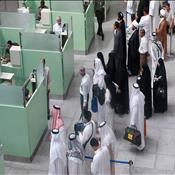 27-Jul-2023Saudi Arabia has ended the sticker visa system on passports for 12 countries
27-Jul-2023Saudi Arabia has ended the sticker visa system on passports for 12 countries -
 16-Oct-2025Saudi Crown Prince Announces Launch of ‘King Salman Gate’ Project in Makkah
16-Oct-2025Saudi Crown Prince Announces Launch of ‘King Salman Gate’ Project in Makkah -
 16-Mar-2021Top 10 Best Sellers and Famous Pakistan Tour Packages
16-Mar-2021Top 10 Best Sellers and Famous Pakistan Tour Packages -
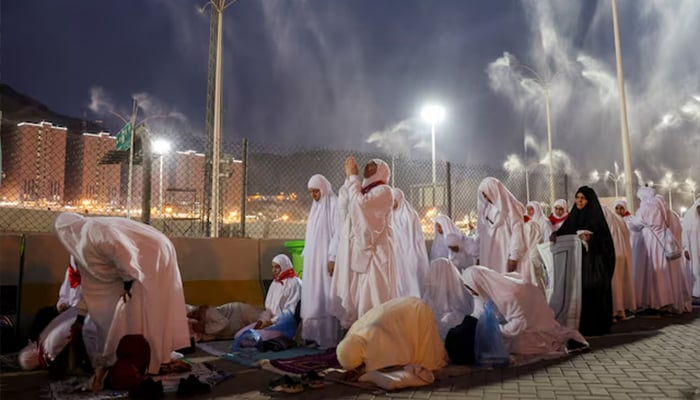 24-Feb-2025Women Pilgrims in 2025: New Rules for Performing Hajj Without a Mahram
24-Feb-2025Women Pilgrims in 2025: New Rules for Performing Hajj Without a Mahram -
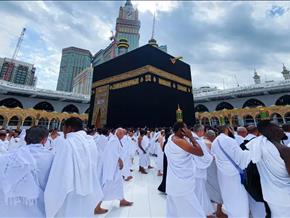 13-Feb-2025Substitution Procedure with Instructions and Form for Government Scheme Hajj 2025: A Comprehensive Guide by Trips.pk
13-Feb-2025Substitution Procedure with Instructions and Form for Government Scheme Hajj 2025: A Comprehensive Guide by Trips.pk -
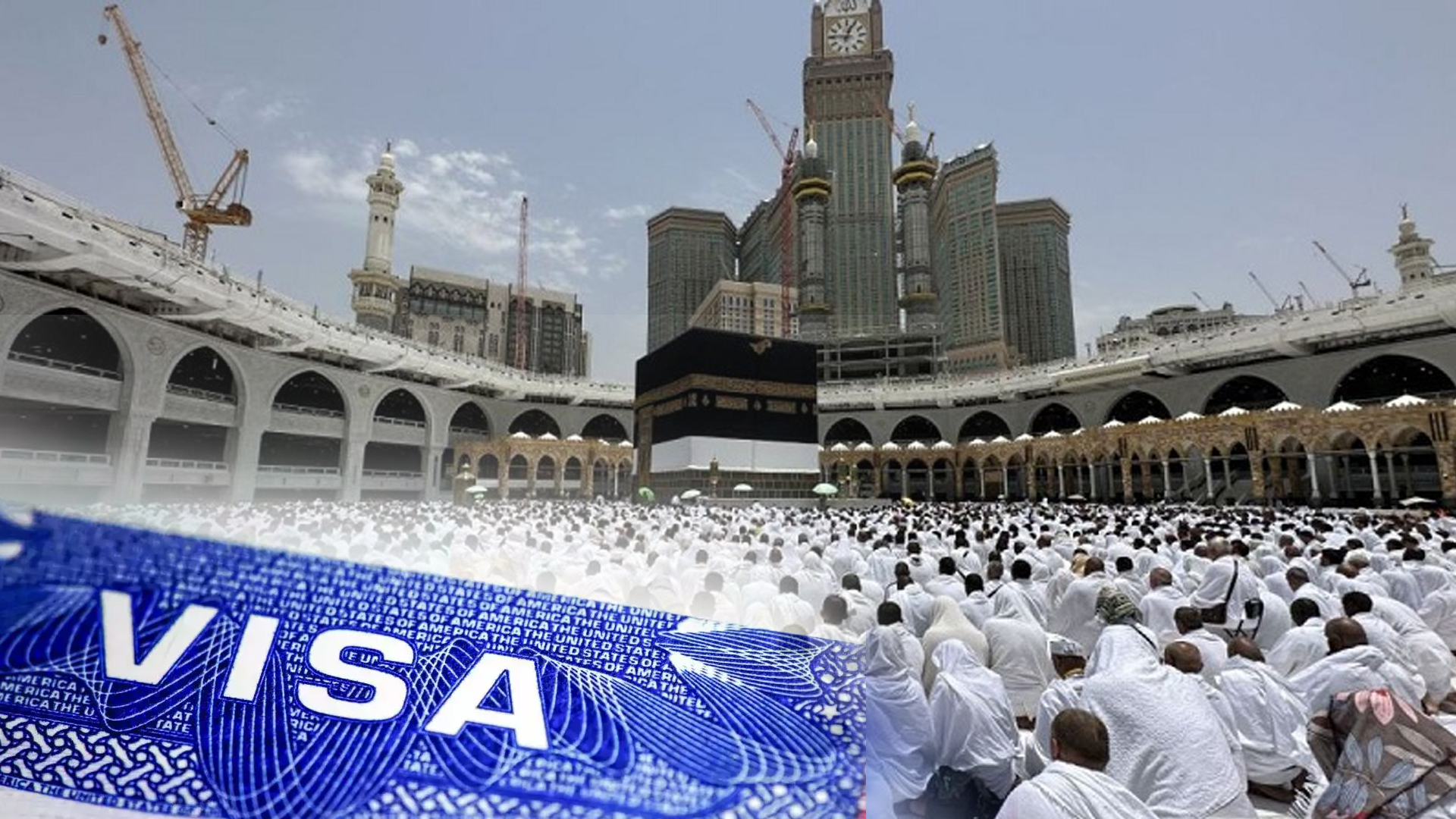 05-Sep-2025Can You Perform Umrah on a Tourist Visa? A Full 2025 Guide
05-Sep-2025Can You Perform Umrah on a Tourist Visa? A Full 2025 Guide -
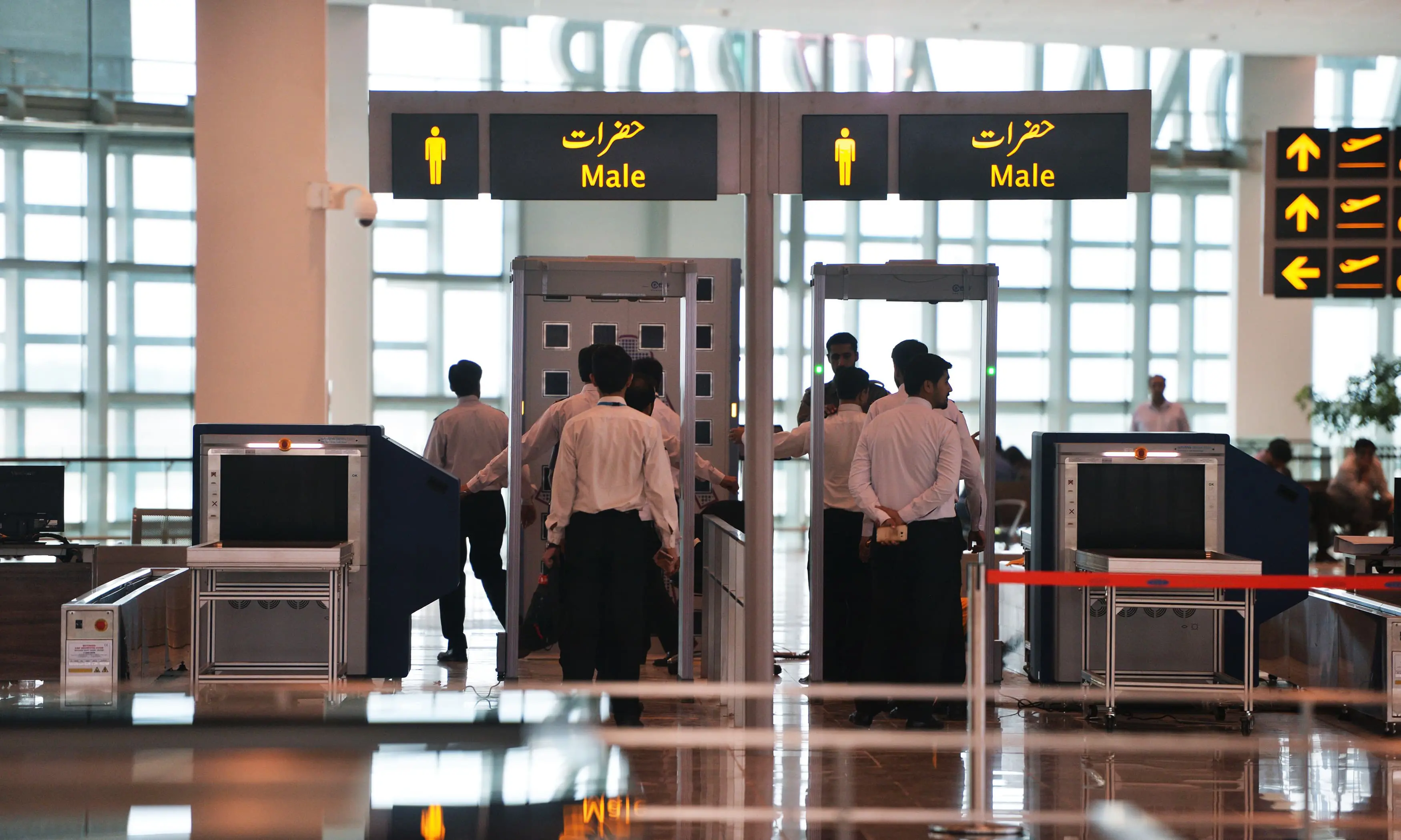 23-Apr-2025The Pakistani government has announced plans to build two new airports, revealing their intended sites
23-Apr-2025The Pakistani government has announced plans to build two new airports, revealing their intended sites -
 08-Oct-2024Top Places to Visit in Saudi Arabia after Your Umrah
08-Oct-2024Top Places to Visit in Saudi Arabia after Your Umrah -
 23-Aug-2019Top 5 London Hotels Perfect for the Pakistani Traveler
23-Aug-2019Top 5 London Hotels Perfect for the Pakistani Traveler
